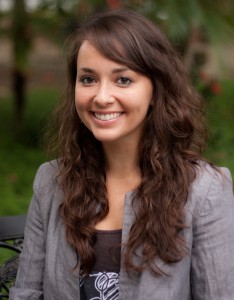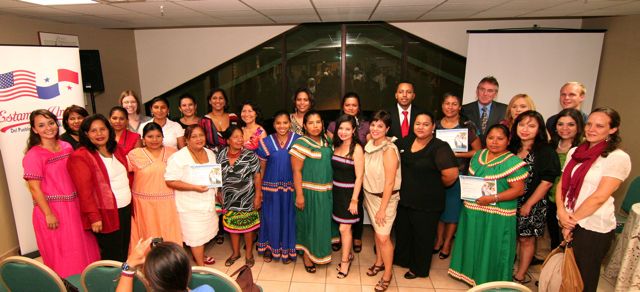Throw Out the Ladder, Take a Leap

Jackie Hyland is a social entrepreneur and international development professional who has lead efforts on women to women business mentoring and entrepreneurship with her program La Red de Mentoras in Panamá, and as Program Coordinator for rural and indigenous business programs at Voces Vitales Panamá. She holds B.A. in International Relations and Journalism from Baylor University, and she is a Binational Business Fulbright Scholar. Jackie will begin her MBA and work as a Project Analyst with Angel Ventures México this August.
GUEST CONTRIBUTOR: JACKIE HYLAND, 2012-2013 Fulbright Scholar
It’s post-college graduation. It’s a few years out of college. Heck, it’s 40 years into your career and you are still trying to get-on or work-up the infamous “corporate ladder.” And if it’s not the corporate ladder, it is the non-profit ladder, the organizational ladder, or the public sector ladder. Whatever it is, please throw out the ladder.
The traditional route of beginning as an entry or mid-level position and working your way up,or horizontally, can have its successes and even, benefits. But, if we are talking about entrepreneurship, innovation, and pursuing your passions, there is a fine line between building a career, and just building extra lines on your resume.
Glenda Bailey, current CEO of Harpers Bazaar, simply had an incredibly passion-loaded idea for a fashion magazine when she began. No formal journalism training, just a degree in fashion design and a piercing focus on what she wanted. She said in this interview series that after her parents had died, that moment served as a catalyst for her to take immediate action on her dream as a young adult. She said, “I got off the bus, went straight to a public phone box, and called IPC Media. I called and said, ‘I would love to meet with you, I have an idea for a fashion magazine.’” And when she received the money from IPC to make her magazine, she did not even know exactly how to do it.
She then created Folio, a quarterly fashion magazine, and because of its’ success, she now runs what is now one of the most important, high-end magazines in fashion — Harpers Bazaar. “I am a great believer in starting at the top,” she said. “I really think that focusing on a career and working your way up is way, way, way overestimated. I think it is much better to know exactly what you want and start at the top.”
It all starts with knowing what you want and a leap.
I say leap, because a lot of time we hear about professional “steps” to success. Steps are way too small. From Facebook to Apple, many of the founders of these companies were not looking to climb up any ladders. They were looking to make big change and innovation. And knowing what you want can be tricky, and even confusing, but taking the time to reflect and listen to your gut about your passions is valuable. The sooner you can learn to listen to that voice, the better.
This can happen at any age. For me it was two years ago, when I realized I had a passion for something specific (women’s empowerment) and there were people who wanted to help invest to make the idea happen. Through the non-profit where I was working, I created the first rural and urban businesswomen mentoring program in Panamá, La Red de Mentoras. Through it, I met other experts in the field, collaborated, and even merged projects for increased impact and scalability. I learned and came to better understand the nitty-gritty details of starting your own organization: managing a budget, programming, monitoring and evaluation, events, marketing, hiring and firing and finding volunteers. Most of all, through that experience, I realized the fuller extent of my strengths and weaknesses: that I cannot do it all, and that my weaknesses are improved upon and complemented by others who are experts in those areas. Together, not only was the entire program more successful, but we produced better, more dynamic ideas and solutions.

There will be some failures. You will have to deal with big upsets, personal and professional losses, figuring out how to manage your “day job” and entrepreneurial pursuit, family, money and errors. But the rewards and benefits of leaping are insurmountable. Even if you decide that you do not want to run anything of your own and leave or call off your independent pursuit, you will have gained a wealth of knowledge about the field, subject, or area that you are so passionate about.
You will have learned to risk, and risk well, which is one of the most important things we can learn.
Follow Jackie on Twitter and read her recent Q&A with Baylor.